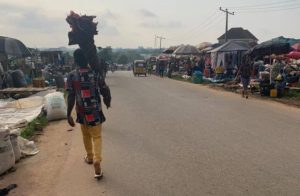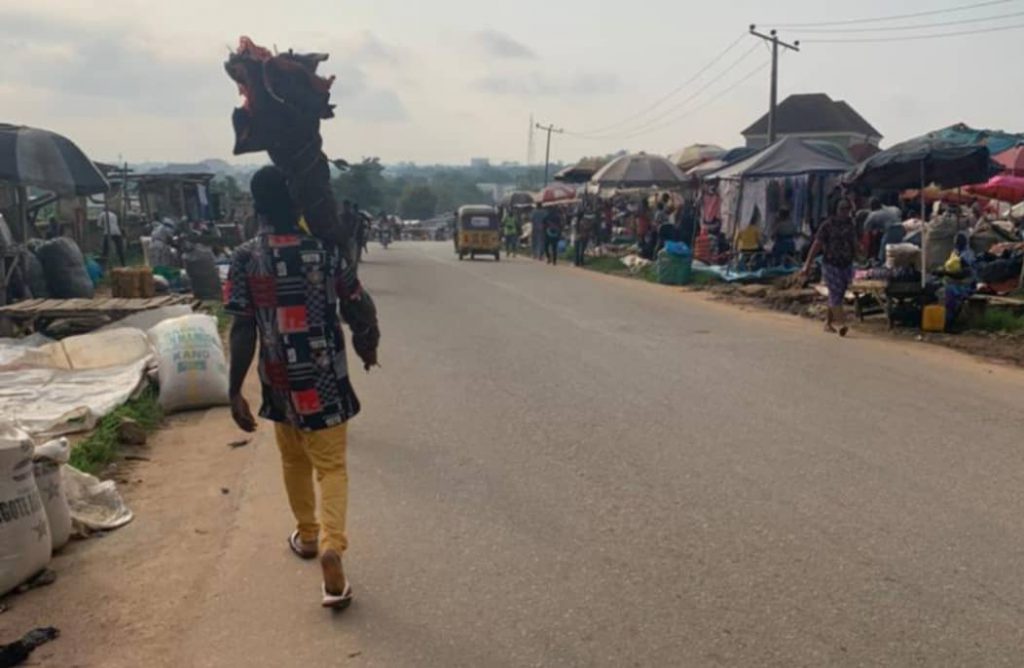Politicians and the neo-liberal market fundamentalists engineered by the West have continued to celebrate and hail Mr. Bola Tinubu the Nigerian president for having the courage to remove fuel subsidy. They care less about how this policy is affecting the poor, destroying the economy, breeding poverty, and widening inequality.
In this report, MAWA-Foundation visited markets, parks, and homes in the Federal Capital Territory (FCT) the Nigerian capital city to gauge how fuel subsidy removal is impacting business and livelihood.
Our interviews revealed that fuel subsidy removal is hitting the poor leading to the crumbling of businesses and affecting their livelihood. The high cost of petrol products that followed the subsidy removal has led to the loss of purchasing power of the citizens bringing about a huge negative impact on businesses, the economy, and livelihood.
At the popular Karmo market, about 16 16-minute drive from the Kado fish market at the Life Camp area, traders who spoke to MAWA-Foundation in different narratives recounted how subsidy removal is affecting their business. Traders who sell second-hand clothes popularly known as ‘Okrika’ say they are the worst hit. According to them, a huge number can no longer buy bales from dealers to sell to the final consumers. A situation they say emerged as a result of subsidy removal.

Miss Uju who sells clothing online, told MAWA that she had a booming business before subsidy removal. But has continued to struggle since the subsidy removal policy came into full implementation. According to her, she sells over N100k a week, but since the removal, she has struggled to sell N50k a week. A reduction of her sales by 50%. This situation she said has become prevalent because her customers have lost purchasing power as they now prioritize food as a result of the high inflation that followed the subsidy removal.
Miss Udoka, who sells shoes online, told MAWA that she had good sales of over N70k a week before the subsidy removal. She now continually struggles to sell N20k a week since the subsidy was removed.
“Before Tinubu removed fuel subsidy, I sold N70k a week, since the removal of subsidy, I struggle to make sales of about N20K a week”, Udoka told MAWA.
The online vendors told MAWA that the high cost of delivery which was triggered by a rise in the price of petrol arising from subsidy removal is a major factor that has negatively impacted their business. According to them, the few customers that are willing to buy, feel reluctant because of the high cost of delivery.
Mr. Stephen Igwe, a civil servant who works in the Ministry of Water Resources, who spoke to MAWA at her Bmuko residence, said subsidy removal has made it impossible for his family to feed let alone take care of other basic needs. According to him, his take-home salary is N65k while he spends N40k on transport monthly. A situation he said makes survival difficult.
“My salary as a staff under the federal ministry of water resources is N65k. After the subsidy removal, I spend N40K on transportation alone every month. How do I survive it” Igwe told MAWA.
A driver at a motor park in Utako close to the Nigerian Union of Journalists (NUJ) secretariat about 600 meters away from Chisco Park, who prefers his identity to be concealed, told MAWA that the Transport sector is the worst hit by the subsidy removal. According to him, if the subsidy is allowed for one year, the transport sector and businesses that depend on it will crumble.
He told MAWA that before subsidy removal, they loaded 15 Sienna Buses to Enugu every day, but since the subsidy removal, they now struggle to load one a day.
“Before the subsidy removal, we load 15 Sienna Buses from Abuja to Enugu every day, but since the subsidy removal, we struggle to load one a day, this is a huge challenge to our business and survival,” the driver told MAWA.
“Visit different parks in Abuja, drivers and loaders are crying, the high cost of transportation has made it difficult for travelers and we the drivers are at the receiving end” the driver added.
“Before now, transport fare from Abuja to Enugu was N13k, presently it has gone up to N25k and above, who has that kind of money to pay”, the driver laments.
As Nigerian leaders continue to propagate the World Bank and International Monetary Fund (IMF) market fundamentalist agenda, evidence has shown that countries that implement IMF neo-liberal policies end up breeding poverty among their citizens.
It is on record that Brazil, Bolivia, Ecuador, and Indonesia are some of the countries that reinstated subsidies after they had a huge damaging effect on the poor and the economy. This is even as the (IMF) had forced them to remove subsidies.
Nigeria’s move to look good before the IMF has taken her back to the Structural Adjustments Programs (SAP) of the 1980s of subsidy removal and currency devaluation that led to mass death and huge poverty.
Nigeria must learn from countries that went poor and are struggling over the battered economy for listening to the IMF and immediately reinstate subsidies before her economy collapses beyond repair.
Queen Nelly James, MAWA Foundation Communication Officer

